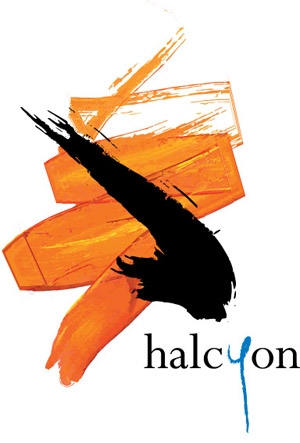SIRENS
St Bartholomew's Church, Blacktown
Opera-Opera, June 2006
Reviewed by John Carmody
Sterling Work from Halcyon
The last concert in Matthew Hindson’s Aurora Festival – “living music” in Western Sydney – curiously put me in mind of a traditional wedding.
Yes, it was in a church (7 May), but the real reason was its alluring blend of old and new. The old was the venue, the former Anglican church of St Bartholomew in Prospect. Though this fine Georgian building is currently sandwiched between the Great Western Highway and the Blue Mountains Motorway, it would have been marvellous in its great days: it is sited on a substantial hill with a striking outlook – I now know the origin of the name of the suburb! – and surrounded by an extensive cemetery where the explorer William Lawson is buried, the man who, in 1838, called for the tenders for the construction of the church. The new was a panoply of music for female vocal quartet, here the admired and admirable Halcyon Ensemble (comprising Alison Morgan and Belinda Montgomery (sopranos) with Jenny Duck-Chong and Jo Burton (mezzo-sopranos)) supported by the harpist Genevieve Lang and (briefly) percussionist Claire Edwardes. They also brought something old: an abiding concern, superbly realised, for peerless standards of performance; it was superbly secure singing.
Their program was, naturally, of varied interest and musical value but some – notably Elliott Gyger’s From the hungry waiting country, which was receiving its world premiere performance – was, I believe, of enduring worth.
As a singer himself (a founder-member of the apparently defunct Sydney Contemporary Singers, he continues to perform actively in Boston where he is a member of the staff of the Faculty of Music at Harvard University) he understands the human voice deeply. Furthermore, he has a fine sense for words. For years, his Christmas cards have featured a brief vocal piece, of 10 bars or so, for diverse forces, their texts in an astonishing array of languages. This major new work is a serious reflection on the importance of water (or the lack of it) for Australia and in it Gyger daringly counterpoints contemporary Australian poets – Randolph Stow, Vincent Buckley, A.D. Hope amongst them – against ancient texts in Coptic, Latin, Syriac and more. It is apiece of great intellectual as well as musical boldness, lasting about 35 minutes.
The texture is complex, the writing virtuosic, the effect deeply engrossing and affecting. Perhaps it is 5-10 minutes too long but its relish for sound, its disposition to respond colouristically to the text never falters – when for instance, Stow writes “seven colours flashed”, that is precisely what the music does; when the text is sere (“the red earth arches away to gibber and dune”) the music is elegiac and chantlike. The concluding quartet (with the harp as much as gentle percussion instrument as a plucked one) mixes humming, dry staccato detachment and soft lyricism in an extraordinary fashion.
This music demands further hearing; it should receive performances in abundance. We are in debt to Halcyon for introducing it to us. By comparison, Three Songs of Sleep by Stuart Greenbaum (a featured composer in this festival), seemed merely competent but conventional. He mixed solos with “ripieno” but did not leave me hoping for a further hearing.
Dan Walker’s tripartite King Ludwig’s Swans was a different matter. This young man’s work is new to me but he shows a flair for achieving interesting vocal textures. At times, the scores was deliberate and hieratic, at others it displayed an adroit overlap of the singers’ lines with some mildly astringent harmonies (yet at the words, “blue lake walk” Walker could bring Stanford to mind); elsewhere his music had a telling richness for such a small cohort of performers.
Kerry Andrew’s lunacy was virtually that. It is an almost insane concatenation of every possible way for the larynx to produce sound (sometimes just noise), yet this Londoner did it with such aplomb that one could take it utterly seriously or as a wild joke with equal warrant. Few other performers could bring it off with such dazzling skill.
Graham Hair’s O Venezia (in four sections) seemed, at the time, to be written with assurance but, as can happen, it left no serious impression. It is the work of a sophisticated musician but somehow lacks the human element to draw one byond noting the skill to responding to the art. Too much learning is not necessarily advantageous for a composer. So, unexpectedly, Steve Reich’s Know what is above you (for vocal quartet and two restrained percussionists) seemed real and direct by comparison. It had frequently had his stylistic fingerprints, of course (notably in the percussion), but the way in which he sustained the voices against that “bass” was refreshingly “unReichian”.
What has become almost old wisdom in Sydney was the way this concert (as David Miller’s Grevillea Ensemble often does, too, especially with their recent performance of Vaughan Williams’ splendid Ten Blake Songs for voice and oboe) was a potent reminder that it is principally such devoted, intelligent and insufficiently valued ensembles which continue to make the authentic contributions to our major city’s musical life.

